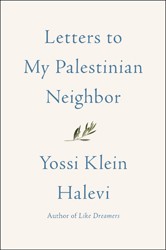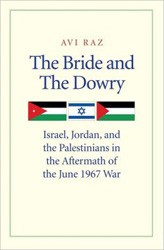For years, Yossi Klein Halevi has distinguished himself as one of the most eloquent and insightful journalists writing from Israel; his new book, Like Dreamers, is, in many respects, the brilliant culmination of his life’s work thus far.
On the surface, Like Dreamers tells the story of seven paratroopers who fought for the liberation of Jerusalem in 1967, but who then took opposing paths, some of them becoming leaders of the peace camp arguing for returning the lands captured in the Six Day War, while others assumed leadership roles in Israel’s then nascent settler movement that advocated keeping the territory forever. But with artistic subtlety, Like Dreamers moves through an account of those seven lives to an account of the life of Israel — its dreams and disappointments, its accomplishment and failures, and of the painful and dramatic choices it still must make.
Like Dreamers charts the origins, successes, and missteps of both the settlers and their nemeses in the peace camp. But the real hallmark of Klein Halevi’s portrait is its ability to illustrate the deeply Jewish and Zionist aspirations of both. He loves and admires both, and gets us, his readers, to do the same.
That is not to say that Klein Halevi embraces all the characters in the book. The description of the Baruch Goldstein attack ends with “the murderer, beaten to death, lay[ing] in his own blood.” And though Klein Halevi harbors a deep love for the Zionist spirit of the settlement movement, he remarks, through one of his characters, that — at least in Hebron — “A foreign spirit, antithetical to Zionism, was stirring.”
His clear-headed distrust of Palestinian leadership is, likewise, refreshingly honest. “In a speech in a Johannesburg mosque intended to be off-limits to the press,” Klein Halevi tells us, “Arafat argued that his peace overtures were merely tactical. He recalled that the prophet Muhammad declared a cease-fire with an Arabian Jewish tribe, and then when he became strong enough, broke the cease-fire and destroyed the tribe.”
In showing us the best (and some of the worst) of each of these movements, leaving us in admiration of their most noble aspirations, Like Dreamers is thus a profound corrective to a longstanding and self-destructive Israeli tendency. “What went wrong?” a young man asks Yoel bin Nun, one of the architects of the settler movement towards the end of the book. Replies the rabbi, “We didn’t listen to the moral arguments of the left.”
Like Dreamers, which models that listening and that self-critique, is thus a balm for the Zionist soul, a stirring model of how those still committed to Israel’s future might forge a new path forward.
Interview
Read Philip K. Jason’s interview with Yossi Klein Halevi here.





